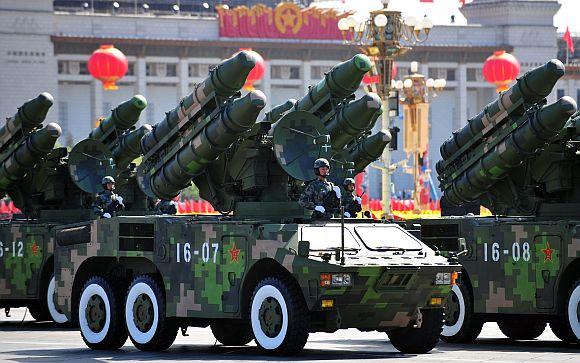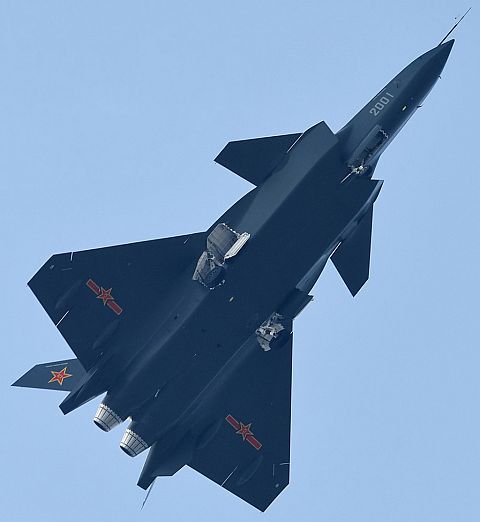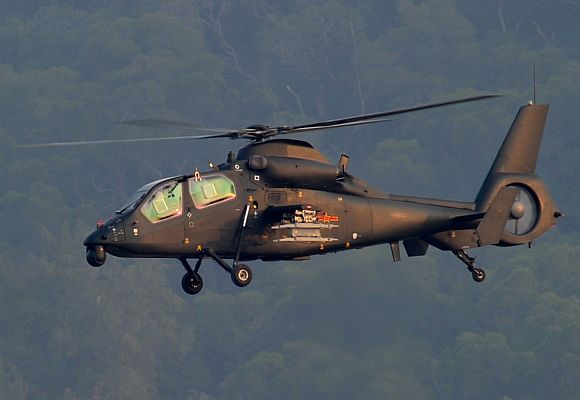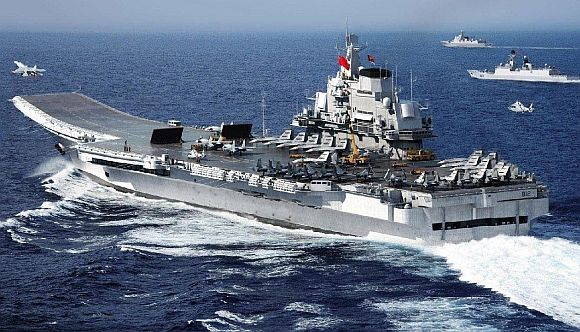 | « Back to article | Print this article |
China hikes defence budget; it's 3 times more than India's
China has hiked its defence budget by 10.7 per cent to $115.7 billion well above this year's Indian defence spending of $37.4 billion.
The hike in the defence spending was announced as the Chinese legislature, the National People's Congress opened its annual session, which this year also marks the once-in-a-decade power transfer.
As per the budgetary papers placed at the NPC, a sum of 720.168 billion Yuan was allocated for defence, which at the current exchange rate amounted to $115.7 billion.
Newly-elected leader Xi Jinping and his fellow leaders would formally take over power from old guard headed by President Hu Jintao in the course of next ten days.
The budget proposals were announced by the outgoing Premier Wen Jiabao who presented a lengthy work report on the decade old achievements of his government.
Click on NEXT to read further...
China hikes defence budget; it's 3 times more than India's
The focus was mainly on the defence budget as China had officially allocated $106.4 billion last year making it one of the top defence spenders in the world.
The 10 per cent hike this year comes when China is rapidly modernising its armed forces in the back drop of deepening stand off with Japan over the disputed islands as well as differences with several South Asian Countries over the South China Sea.
China has already launched its first aircraft carrier last year as well as several versions of new jet fighters including a stealth fighter bracing to deal with big US military push into Asia pacific.
Playing down the steady increase in China's defence budget, NPC spokesperson Fu Ying told a media persons on Monday that China defensive military policies played a "core role" in maintaining peace and stability in Asia.
Click on NEXT to read further...
China hikes defence budget; it's 3 times more than India's
"China's peaceful foreign policies and its defensive military policies are conducive to security and peace of Asia," Fu said.
"It's not good news to the world that a country as large as China is unable to protect itself," Fu said.
Acknowledging that China's rise raised concerns in Japan and other countries, Fu said Beijing beefed up its maritime security and opted to send its ships to patrol the waters of disputed islands in East China Sea after Japan violated consensus agreement and purchased them from private parties.
Click on NEXT to read further...
China hikes defence budget; it's 3 times more than India's
"When some countries make provocation, we should make resolute response and handle these matters in timely manner to send clear signal," she said.
Fu said compared with many other parts of the world, Asia has been largely peaceful after the end of the Cold War, which created a favourable environment for development.
"That is why Asia is so attractive now," she added.



